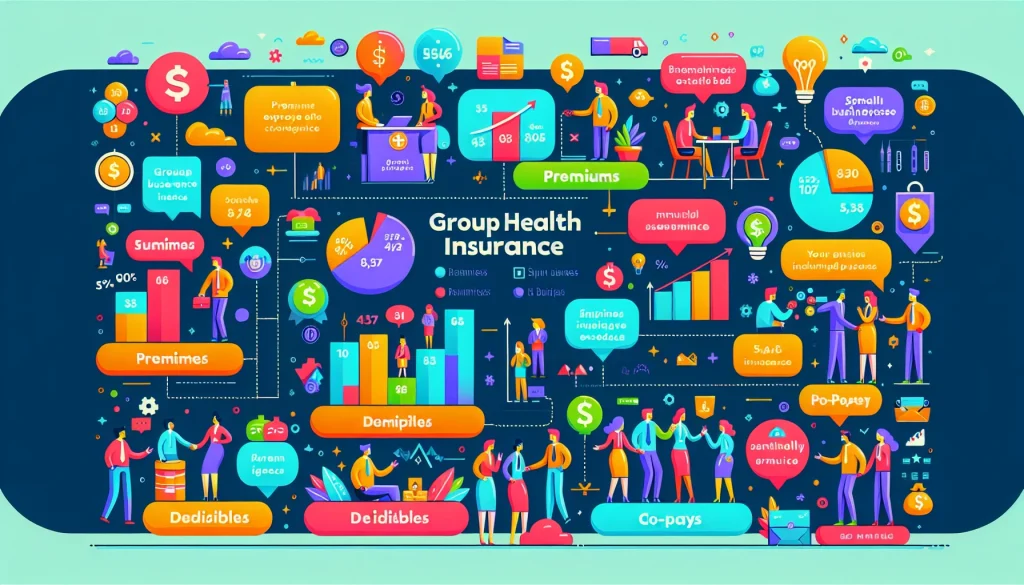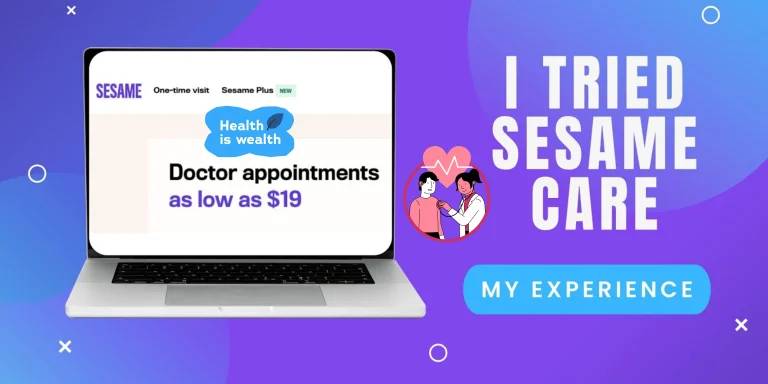Ever wondered what is voluntary life insurance all about? You’re not alone. Many people are unfamiliar with this term, but it’s a straightforward concept that could significantly impact your financial planning. Voluntary life insurance is an optional benefit that some employers offer their employees.
It’s a way to get extra life insurance coverage through your job, often at group rates that are typically more affordable than buying an individual policy. However, it’s more than just a good deal. Think of it as a financial safety net that you can choose to set up through work.
It’s not mandatory, but it can provide extra protection for your loved ones if you pass away. The best part? You don’t usually need to go through the same hoops you might face when applying for a policy on your own. Let’s explore what voluntary life insurance means and why it might benefit you.
Table Of Contents:
- What Exactly Is Voluntary Life Insurance?
- Why Consider Voluntary Life Insurance?
- How Voluntary Life Insurance Works
- Types of Voluntary Life Insurance
- Pros and Cons of Voluntary Life Insurance
- Is Voluntary Life Insurance Right for You?
- How Much Voluntary Life Insurance Do You Need?
- Conclusion
- FAQs About What Voluntary Life Insurance Is
What Is Voluntary Life Insurance?

Voluntary life insurance is a type of life insurance policy offered as part of your employee benefits package. It’s “voluntary” because you choose whether or not to enroll; it’s not automatically included like some other workplace benefits. If you opt-in, you’ll typically pay premiums through payroll deductions.
These premiums are often lower than what you’d pay for a similar individual policy because employers can negotiate group rates. What does this insurance cover? Like other life insurance policies, it provides a death benefit to your beneficiaries upon your death while the policy is active.
This payout can help your family cover expenses like funeral costs, outstanding debts, living expenses, and your children’s future education costs. One key thing to remember is that voluntary life insurance usually comes in two forms: term and permanent. Term life insurance policies cover you for a specific period, while permanent life insurance policies can last your entire life if you keep up with the premium payments.
Why Consider Voluntary Life Insurance?
You might be wondering, “Why should I bother with voluntary life insurance if I already have some coverage through work?” It’s a valid question. Here are a few reasons to consider it:
- It’s often easier to qualify for than individual policies. Many voluntary life insurance plans offer a guaranteed issue coverage up to a certain amount, meaning you don’t need a medical exam or to answer health questions to get approved.
- It can supplement your existing coverage. Maybe your employer-provided life insurance isn’t enough to meet your family’s needs. Voluntary life insurance can help bridge that gap and give you greater peace of mind.
- It’s convenient. Premiums come directly out of your paycheck, so you don’t have to worry about remembering to make monthly premium payments. This can be especially helpful if you prefer to automate your finances.
There are even more reasons why you might want to consider getting voluntary life insurance. Here are a few more to consider:
- It might be portable. Some policies allow you to take the coverage with you if you leave your job, although the monthly premiums might increase. This means you can maintain your coverage even if you switch employers.
- It can be less expensive than individual policies, especially if you have health issues that might make other insurance policies costly.
How Voluntary Life Insurance Works

Let’s break down how voluntary life insurance typically operates:
- Your employer offers the benefit, usually during open enrollment periods.
- You choose whether to participate and how much coverage you want, often in multiples of your salary. You’ll also typically need to designate your beneficiaries who will receive the death benefit.
- If you enroll, premiums are deducted from your paycheck automatically, making it easy to budget for.
Here are a couple more important things to keep in mind when learning about voluntary life insurance:
- The policy remains in force as long as you work for the company and make your premium payments (unless it’s a portable policy). This means your coverage is tied to your employment, so it’s essential to understand the implications if you leave your job.
- If you die while covered, your beneficiaries receive the death benefit. The death benefit is paid out to your chosen beneficiaries, providing them with financial support during a difficult time.
It’s worth noting that some employers might offer a small amount of free coverage, with the option to purchase additional coverage at your own expense. This free coverage is a valuable benefit, so maximizing it is always a good idea by purchasing supplemental coverage if you need it.
Types of Voluntary Life Insurance
When considering voluntary life insurance, you have options. Let’s explore the two main types:
Voluntary Term Life Insurance
This is the most common type of voluntary life insurance. Here’s what you need to know:
- It covers you for a set period (like 10, 20, or 30 years), providing coverage during specific stages of your life.
- Premiums are generally lower than permanent policies, making them more affordable.
- It’s an excellent option if you want coverage during your working years or until your kids are grown.
- Some policies may be convertible to permanent coverage later, giving you flexibility in the future.
Voluntary Permanent Life Insurance
While less common, some employers offer permanent life insurance options. Let’s look at what permanent life insurance is all about:
- These policies provide coverage for your entire life, as long as you pay the premiums, offering lifelong protection.
- They may build cash value over time that you can borrow against, providing a potential source of funds.
- They are typically more expensive than term policies due to their lifelong coverage and cash value component.
- They might be a suitable choice if you want lifelong coverage or are interested in the cash value component, which can be used for various financial needs.
Pros and Cons of Voluntary Life Insurance
Like any financial product, voluntary life insurance has advantages and disadvantages. Let’s break them down:
| Pros | Cons |
|---|---|
| Often less expensive than individual policies | Coverage may be limited compared to individual policies |
| Easier to qualify for due to guaranteed issue options | You might lose coverage if you leave your job (unless it’s portable) |
| Convenient payroll deductions for hassle-free premium payments | Less flexibility in policy options compared to individual plans |
| May be portable, allowing you to continue coverage if you change jobs | Premiums may increase if you leave your job and take the coverage with you |
| Can supplement existing coverage to meet your needs fully | May not provide enough coverage on its own, especially for those with higher coverage needs |
Is Voluntary Life Insurance Right for You?

Deciding whether voluntary life insurance is a good fit depends on your circumstances. Here are some situations where it might make sense:
- You have health issues that make individual policies expensive or hard to get. Voluntary life insurance often has more lenient underwriting requirements.
- You want to supplement your existing coverage without the hassle of applying for a separate policy. It provides an easy and convenient way to increase your coverage.
- You’re young and healthy, and your employer offers competitive rates. This can be a cost-effective way to secure coverage early on.
Here are a few more instances when getting voluntary life insurance could be a good option:
- You want the convenience of payroll deductions and workplace-managed coverage. This simplifies the payment process and keeps your coverage centralized.
- You’re interested in portable coverage that you can take with you if you change jobs. Portability ensures your coverage isn’t tied to your employment.
Conversely, voluntary life insurance might not be the best choice if:
- You need a large amount of coverage that exceeds what your employer offers. In such cases, exploring individual policies might be necessary to secure sufficient coverage.
- You want more flexibility in policy options and features. Individual policies generally offer a broader range of options to tailor coverage to specific needs.
- You’re very healthy and can get better rates on an individual policy. It’s always wise to compare rates and coverage options to ensure you’re getting the best value.
- You’re concerned about job stability and want coverage separate from your employment. In such cases, an individual policy might offer more security.
How Much Voluntary Life Insurance Do You Need?

Determining the correct amount of coverage can be challenging. A general rule of thumb is to have 8-10 times your annual salary in total life insurance coverage. But your needs might vary based on factors like:
- Your current debts, such as mortgages, auto loans, or credit card debt
- Your family’s living expenses, including housing, utilities, groceries, and transportation
- Future education costs for your children if applicable, covering tuition, room, and board
There are a few more factors that will play a role in figuring out how much life insurance you’ll need:
- Your spouse’s earning capacity, considering their income and future earning potential
- Your long-term financial goals, such as retirement savings or leaving an inheritance
Remember, voluntary life insurance can be a component of your overall coverage strategy. You might combine it with your employer-provided basic life insurance and an individual policy to reach your desired total coverage amount, ensuring adequate financial protection for your loved ones.
Conclusion
Understanding what voluntary life insurance is can open up new opportunities for protecting your loved ones financially. It’s a coverage type that bridges the gap between employer-provided basic life insurance and individual policies that you buy independently.
While voluntary life insurance isn’t the right choice for everyone, it can be a valuable tool in your financial planning toolkit. It offers convenience, potentially lower rates, and easier qualification, which can make it an attractive option for many employees.
As with any financial decision, it’s essential to carefully consider your needs, compare your options, and possibly consult with a financial advisor before deciding if voluntary life insurance is right for you. By understanding this option, you’re taking a proactive step towards securing your family’s financial future and ensuring they are taken care of if the unexpected happens.
FAQs About What Voluntary Life Insurance Is
How Does Voluntary Life Insurance Work?
Voluntary life insurance allows you to buy additional life insurance coverage through your employer. You usually pay premiums through payroll deductions, and the policy provides a death benefit to your beneficiaries upon your death while covered. It’s often easier to qualify for than individual policies and may offer more affordable group rates.
Can You Cash Out Voluntary Life Insurance?
Generally, you can’t cash out voluntary term life insurance because it doesn’t accumulate cash value. However, if you have a permanent voluntary life insurance policy that builds cash value, you might be able to borrow against it or surrender the policy for its cash value, subject to the policy’s terms and conditions. It’s essential to review your policy documents or contact your insurance provider for detailed information about your specific policy.
Can You Use Voluntary Life Insurance While Alive?
In most cases, voluntary life insurance is designed to provide a death benefit, not living benefits. However, some policies might offer riders or features that give you access to benefits while alive, such as accelerated death benefits for terminal illnesses. It’s crucial to check your policy details to understand what options, if any, are available. You can usually find this information in your policy documents or by contacting your insurance provider.
What Happens to Voluntary Life Insurance When You Leave a Job?
What happens to your voluntary life insurance when you leave a job depends on the policy’s terms. Some policies are portable, meaning you can take them with you, although your monthly premiums might go up. Others may let you convert to an individual policy. In some cases, the coverage might end when your employment does. It’s crucial to review your policy or speak with your HR department to understand your options before making any decisions about your coverage.





